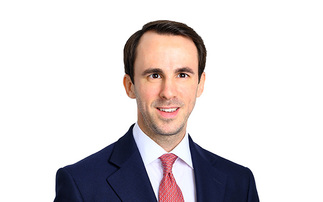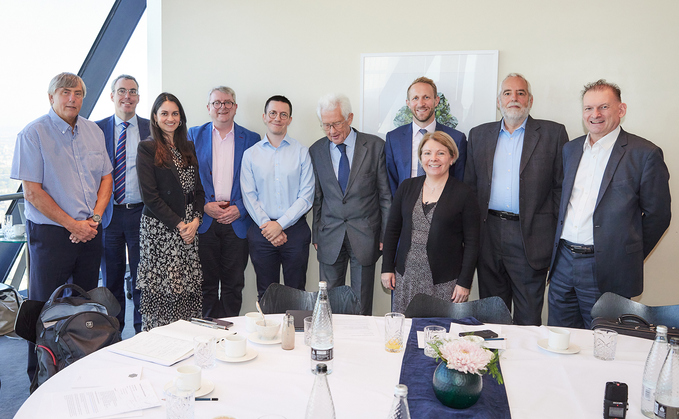
(left to right) Railpen trustee director Gary Towse, Professional Pensions editor Jonathan Stapleton, Russell Investments head of global ESG strategy Jihan Diolosa, GMB finance & pensions officer David Castledine, Redington sustainable investment director Edwin Whitehead, BESTrustees president Alan Pickering, Russell Investments head of UK fiduciary management Simon Partridge, Zedra Governance director Alison Bostock, Pi Partnership Group professional trustee Graham Jung and Capital Cranfield Trustees professional trustee Mark Hedges
At the beginning of April last year, Professional Pensions assembled a panel of experts to discuss some of the challenges larger defined benefit (DB) schemes were facing and how they were looking to address them.
The event - held in association with Russell Investments and chaired by PP editor Jonathan Stapleton - looked at how schemes' objectives and investment portfolios had changed over the six months following the liability-driven investment (LDI) crisis, both as a result of market volatility and improved funding.
This follow-up roundtable held in October looked specifically at sustainability - asking whether, given the shorter funding timeframes many schemes now have, there has been a change in appetite in this area.
It also considered how schemes are complying with Task Force on Climate-Related Financial Disclosures (TCFD) requirements, how sustainability metrics are being incorporated into quarterly reporting and how schemes are approaching ESG when it comes to endgame - asking the extent to which ESG credentials are important when it comes to selecting insurance providers and how much sustainability considerations are taken into account for schemes in runoff.
It also discussed the extent to which ESG is now broadening beyond decarbonisation into other ‘E', ‘S' and ‘G' areas such as nature-related financial disclosures and biodiversity, and assess the extent to which the Mansion House reforms may change trustee perspectives on ESG going forward.
Has there has been a change of appetite in the sustainability space?
Graham Jung: ESG is now number four in trustees' top three lists of what are looking at! But it is there and it is important - there is a regulatory reporting activity that has to be done, and if it is going to be done, it may as well be done well. But it isn't the number one thing on trustees' minds in the way it is for some of the asset managers. Saying that, however, we are starting to see presentations from asset managers where ESG is back to being the first bit of the appendix - two years ago, when I left fund management, it was front and centre with everything else around it.
Alan Pickering: I think ESG has now become mainstream. In the institutional market, I'm not sure there is a future for things that are labelled ESG because ESG has got to be the norm rather than the exception.
DC trustees need to home in on what their funds are doing, not necessarily to tell members that ESG is front and centre but because ESG is factored into what we do. It should be a win‑win and improve outcomes.
Alison Bostock: I would agree - I think ESG is mainstream now. It was a lot easier to think about when DB schemes had some equities, and most of mine do not even have equities anymore. When you have large LDI portfolios and the liquid assets supporting it, you then really have to think about how you are interpreting sustainability and ESG - it is a different challenge.
David Castledine: ESG is an important indicator that has got broad scope within pension schemes. From the employer covenant and the investment strategy in a self-invested personal pension (SIPP) to actuarial considerations, ESG has become an integral part of everything now and is part of the narrative within trustee meetings - it is definitely a standard agenda item now.
Mark Hedges: It has become a standard item on agendas and many schemes are also producing their Task Force on Climate-Related Financial Disclosures (TCFD) reports.
If you are a closed scheme, then many seem to be focused on going to buyout in five years - something that will necessarily change your perspective and makes you think about the insurers.
There are a couple of things with that - first, to what extent should I think about the insurer in terms of ESG and what they are doing. Also, is the buyout market big enough? A lot of people might need a longer horizon than five years, in which case they cannot just stand around and not think about ESG. If both this and the Mansion House reform lead to a longer-term run off rather than an immediate jump to buyout, it would be interesting to see how that changes people's behaviours around how they are investing.
Edwin Whitehead: ESG has changed massively over the last three years, driven principally by the level of education and understanding in the market and what it means to different investor types.
Some trustee clients are seeing ESG as just risk management and making sure they are running their portfolios well. Some others however, particularly those with very long-term time horizons, are thinking of this more in terms of a universal owner mindset, recognising that, with these long-term horizons, they cannot simply diversify away from some of the ESG challenges - and we are helping them work out the way forward with issues such as remaining invested in fossil fuels, nature, antimicrobial resistance and so-on.
As the market settles down, some trustees are saying, ‘this is what is important to us, this is how we are managing our investment strategy'. Whereas, clients with long-term horizons and a universal owner mindset view ESG as more existential and linked to their core purpose and mission-driven values.
Simon Partridge: I think the LDI crisis has shifted mindsets and led to a review of overall objectives - with many schemes asking questions such as ‘Where are our pension plans going?', ‘Is it five years to buyout?' or ‘Is it more of a long‑term run-off type of strategy?'.
Once they answer these questions, it is then they can think about how they are integrating and implementing ESG and sustainability considerations into that strategy.
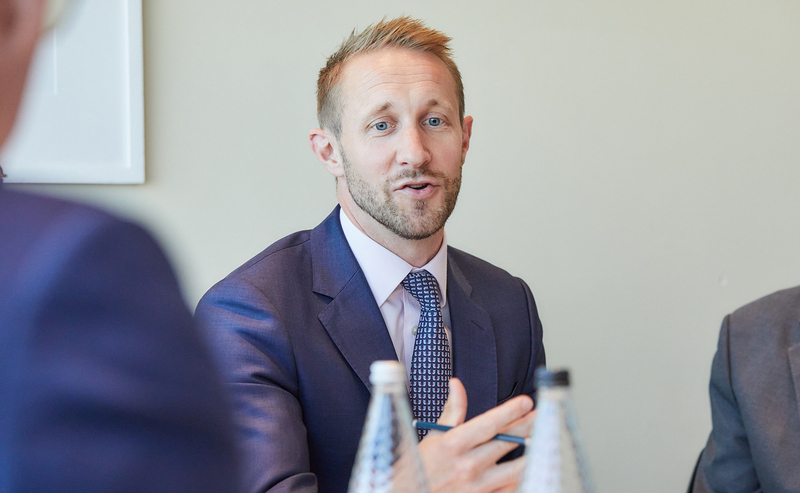
Jihan Diolosa: I would like to take this up to the global level and put the UK in the context of what is happening in other jurisdictions.
I believe the UK is in a really good position because we have seen sustainability being forced onto the agenda via the statement of investment principles requirements, implementation statements and TCFD reporting becoming mandatory for large schemes.
This means the whole conversation around fiduciary duty is very in sync with sustainability and ESG considerations - something that is not necessarily the case in other jurisdictions.
However, I disagree that ESG is mainstream, even in the UK. While it has been forced onto the pension scheme agenda, there is still a difference between the very large schemes and the smaller ones. Some of the small schemes, for example, are still very much on the journey and the education still needs to happen to bring the whole pension system along.
Alison Bostock: I don't think there has been a change of appetite, instead the implementation of it is no longer as straightforward. It was obvious to move all your equities into ESG-tilted indices rather than global equity trackers, that was step one. Now, people are having to look at things such as sustainable credit and the performance of funds that may not have a very long track record - it feels like more of a step in the bond credit space because it has not been thought about so hard and for so long.
It is more challenging than the easy stuff we did a couple of years ago.
Mark Hedges: The challenge post gilts crisis is everyone is suddenly in surplus.
Many trustees will have sold a lot of liquid assets to maintain their buffers for LDI and, if you have sold your equity portfolio and liquid credit, you are now left with a big pool of gilts and some illiquids. This leaves trustees wondering how they can really move the dial on ESG.
How are larger schemes complying with TCFD requirements?
Graham Jung: I went through the process with a couple of schemes. I think what was generally missing in those schemes, and as I have seen since, is asking the question ‘why are we doing this?'. Yes, schemes have to do to - but what are they looking to get from this exercise in terms of supporting the sponsor position, engaging with members and so-on. I think that is the thinking which has to happen now. We have to do it, but why? What are we trying to get from this?
Alison Bostock: I could not agree more. There is a huge amount of time and resource being spent putting together these reports, yet many trustees fail to understand what they are telling us and the meaning of the metrics.
Hopefully, once more of these reports have been completed and more standard text exists, there will be more time to appreciate what the report is telling us, and we will start to see some trends that we can act on.
Gary Towse: From a member perspective, I wonder how many actually read the TCFD report or summary and how much interest there is out there?
Edwin Whitehead: I have been working with some of my clients doing TCFD statements since 2018, since before the biggest schemes actually had to do it on a compulsory basis. In the last five years, there has been a massive change in terms of the availability of data, emerging standards, and the conversations you can have with different parts of the investment value chain.
There has been a shift in what metrics to measure. We now tell trustees to worry less about annual changes in carbon footprint as it can be dominated by non-carbon variables, principally financial valuations. We say focus on forward-looking alignment, allocate to solutions where you can, and make sure your stewardship efforts have teeth.
For schemes that have been reporting for five to six years, we are seeing changes around the value of TCFD as climate risk management is becoming more sophisticated and embedded. That will ultimately filter down. And it does get easier in the second year.
Jihan Diolosa: I am a bit disappointed to hear some trustees are viewing TCFD as a tick-box exercise - hopefully this mindset will change as experience grows. For the groups of trustees that I have been working with on TCFD, it has been a 12-month process because of the education around new terminologies.
We have tried to bring the ‘so what?' out of the TCFD report by looking to understand the metrics and their forward-looking elements, rather than focusing on just the carbon footprint.
This involves looking at the underlying security alignment to net zero and using the data that is available, noting the limitations, to identify hot spots within the portfolio. This is something that helps you to have conversations with the right managers on the right stocks.
Again, let go back to that global view. UK pension schemes are the first in the world to have produced TCFD reports. None of the other jurisdictions in which I work have to produce these disclosures, so the rest of the world is looking at the UK thinking, ‘how is this panning out?' - and we are now seeing traction for the wider adoption of TCFD reporting, something I see as a huge positive, painful though it has been for some UK schemes.
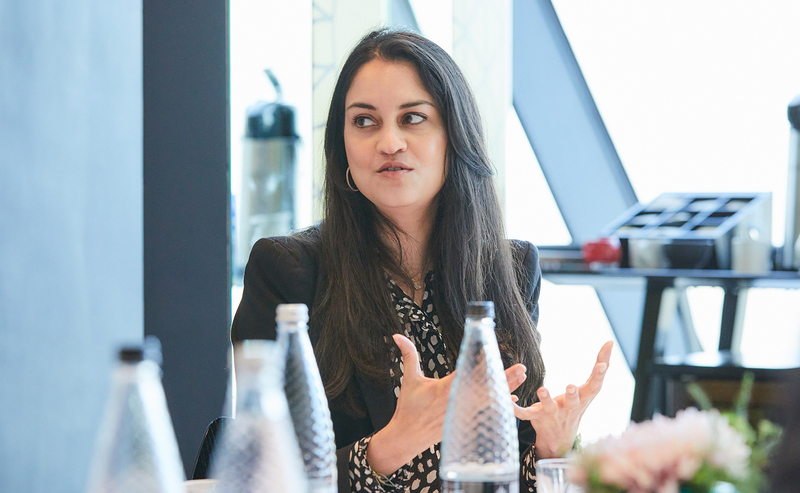
Simon Partridge: It is interesting to hear the comments around the ‘so what?' of the TCFD report and the questions around whether members are actually reading this report. At this stage, I don't think it is important if a member does or does not read the report - it should be about trustees and what they are doing about the analytics, the summary and the conclusions of that report? How are they taking it to the next level?
Yes, in years to come, I hope that we can have a short snapshot of the report or a short executive summary that says exactly what is happening so that members can engage with it more. In this earlier stage, it should be about getting the information, to the extent that it is available, getting it down and drawing some conclusions after two or three years of going through this process.
Is the quality of data improving?
Mark Hedges: Some of the boutique managers remain behind the larger institutional managers in terms of climate data, so the target for us is more about getting data out of them and seeing an improvement year-on-year.
Overall, however, we are seeing an improvement in the provision of data and data quality, but it is going to be a slow process and will only happen through engagement and your investment team, fiduciary manager or investment manager responding to those requests.
Alan Pickering: We are going to need help in evaluating data relevance and quality, especially when it comes to the pursuit of accuracy. You can pursue accuracy to such a point it becomes spurious, and we need someone to help us be proportionate, relevant and evolutionary in the data that we ask for and the value that we put on it.
Are trustees broadening ESG to nature-related issues such as biodiversity, and social considerations?
Graham Jung: Many trustee conferences and meetings centre on ‘S' far more than ‘E', which could be a response to energy prices, the cost-of-living crisis or pushback from members or unions.
My personal fear around TNFD is that it has been lost in the noise of everything else going on. If we could rewind, to do TNFD before TCFD, we would have had quite a different outcome.
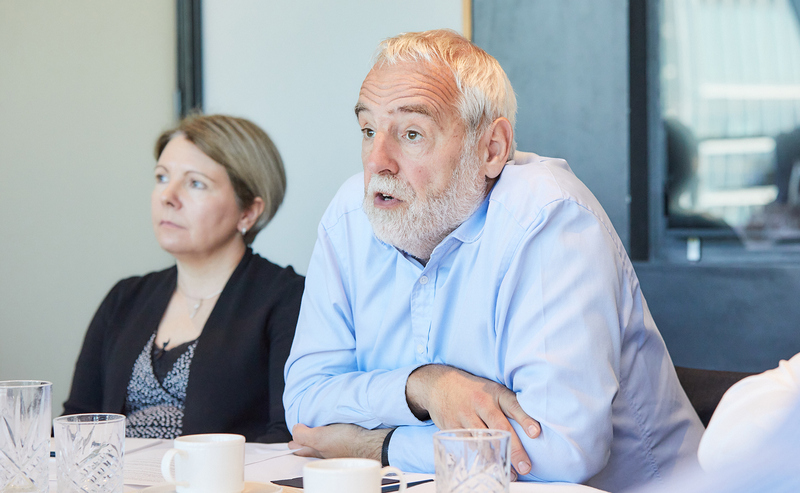
Alison Bostock: I would agree with that. I do not see biodiversity being talked about as much as the social side.
Simon Partridge: Since the Mansion House reforms, there is a broader interest in thinking about investment strategy as a whole and how we can implement this in a better or more social way, while also thinking about nature and biodiversity.
The actual way of implementing that is still at an early stage in terms of how to invest in biodiverse projects on a sensible enough timeframe. Investing in a forestry project, for instance, is a multi-decade project and you always have to balance something like that with the overall objectives of a DB pension fund, where it is on its journey and where the trustees want to get to.
Jihan Diolosa: The sentiment among the investment community seems to be that nature is too much to deal with right now as a lot of schemes are still grappling with TCFD.
The challenge is trying to digest TNFD and communicate the link with TCFD to trustee groups and talk about how we can broaden out the existing infrastructure to address nature and biodiversity.
The sad reality is that half of the world's economic output is dependent on nature, so it very much has an impact on underlying profitability - there is a direct financial link and that is why TNFD will follow a very similar path to TCFD in terms of integration into what trustees need to be thinking about. Our role as advisers is to digest this, to simplify it and to make sure that the metrics used are decision useful.
On the social point, we are hearing of a lot of action and a lot of good work that is being done by pension schemes already. The DWP launched a Taskforce on Social Factors earlier this year, which has been given months to come up with a framework to support trustees thinking about social factors. This will be a welcome development.
Will the Mansion House Reforms change trustee perspectives on ESG?
Alison Bostock: Only if the outcome is the mass consolidation of smaller schemes. There is so much duplication of effort going on in our very fragmented DB world that unless something genuinely leads to mass consolidation, not much will change in the closed private sector DB world.
Graham Jung: I do not believe in the ability of government to pick winners and I'm not sure either the assets or the desire for these reforms are there. This is the third or fourth time in my career when government has said, ‘The industry is short-term. You must do something.' We are happy to invest long-term, the industry is happy to take long-term mandates and advise long-term. Everyone is happy except government, which has a three-year time horizon. In a year's time, who will be making the policy decisions?

What are your key takeaways following our discussion today?
Alison Bostock: Finishing on a positive note, I am hopeful on TCFD reporting and that it will come to be used in an ever more useful way. And I have been hugely encouraged by what I have heard on that during this discussion.
Graham Jung: Summing up, the key to success of TCFD and associated activities is tying it to real world impact and tying it back to trustees and sponsors' particular interests/fears.
Mark Hedges: It is about how it influences decision-making and, as I have alluded to, I suspect that is much harder in a closed DB world. Saying that, if it leads to the right decision-making and the right investment decisions, then open DB and DC schemes may be able to use it for a positive impact change.
Gary Towse: I hope we are not still having this discussion in five to 10 years' because nothing has been done. Something has to be done - if we can't slowly bring it back from the edge, climate change is going to blow this world up.
David Castledine: Trustee boards of open DB schemes must reflect on what is coming down the line, react to what is coming and make and review those changes. Hopefully, this will lead to even better member outcomes - which is ultimately what we all stive to do, to make that difference to our members.
Edwin Whitehead: For me, it is about how can we think about this from a real-world perspective and what must happen by the end of this decade. This includes the phase-out of fossil fuels, $4.5trn (£3.54trn) a year into renewable energy capacity and the protection and restoration of the planet's natural ability to sequester carbon emissions, i.e., ‘nature'. That is where TNFD fits as part of a nature-positive net-zero journey, it is the other side of the coin.
Thinking with an investment mindset, do we have the ability to contribute towards that journey? If we do not, you can hold managers more accountable, allocate capital towards it and advocate at the policy and public level - at least then you are adding at the margins.
Alan Pickering: I feel very positive because of this discussion. Consolidation is going to apply to both DB and DC pension schemes, which helps schemes pass the ‘so what?' test because they are big enough to have an influence.
To make it work, we need the governing bodies of large schemes to have sufficient self-confidence to behave in a responsible fashion and display their responsibility across a wide range of issues.
We need governing bodies to be diverse and, I do not think that having a mixed race, mixed gender trustee board, all of whom went to Oxford University, equals diversity. We want people with real-world experience to leverage their skills in the trustee room to make responsibility a reality.
Jihan Diolosa: I want to end by congratulating all of you for being on your TCFD journey. Believe it or not, you are the leaders in this space, and other pensions schemes around the globe will be looking at what you have done for your schemes as case studies.
The more you can make tangible steps on your climate journey over the next couple of years, the greater will be the value for the wider investment community beyond the UK.
Simon Partridge: The key is the ‘so what?' of the reporting. What does TCFD mean and how can we use that reporting to make real changes in the way that our clients are investing? That is the clear challenge for us as asset managers, as outsourced chief investment officers (OCIOs) or as fiduciary managers.
This roundtable was held on 10 October 2023 in association with Russell Investments




